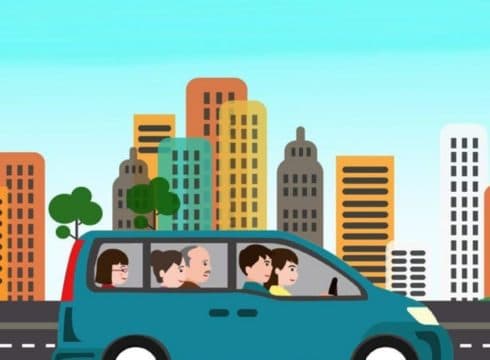Travellers in India spend 1.5 hours more on their daily commutes than its other counterparts in other Asian countries
Carpooling platforms today offer phone number masking for sake of privacy
Carpooling is an important initiative that can go a long away in decongesting city roads, improving air quality and more
Inc42 Daily Brief
Stay Ahead With Daily News & Analysis on India’s Tech & Startup Economy
As the world continues to move on the fast lane, vehicles on the road have drastically slowed down. Traffic congestion has now become the hallmark of any big urban city in India. An aspirational and growing middle-class has led to the growth in car ownership across the country. However, inadequate mobility infrastructure has made our cities congested and polluted, making it one of the key challenges in boosting the nation’s economy.
As one of the fastest-growing economies in the world, it is imperative to address this ‘menace’ before it turns into an urban catastrophe. According to a report released by The Boston Consulting Group (BCG), on an average, travellers in Delhi, Mumbai, Bengaluru, and Kolkata spend 1.5 hours more on their daily commutes than their counterparts in other Asian cities during peak traffic times.
While the government continues to improve the infrastructure and quality of public transport in cities, it has a lot of catching up to do in order to limit or restrict people’s dependence on privately owned vehicles. This is where shared mobility comes into the picture as a possible solution for tackling urban congestion. According to a report by Morgan Stanley, India is touted to be one of the largest shared mobility markets in the world, owing to its large population clusters, a young tech-savvy demographic, rising incomes and increasing purchasing power.
Carpooling, also known as ridesharing is one of the most popular forms of shared mobility, adopted in growing economies. It is a least-cost, non-infrastructure based solution to the mounting traffic situation. For people who have rejected the notion of public transport and yet looking for an economical and comfortable alternative to commute to work, carpooling and bike pooling is the way to go. To begin with, it’s lighter on the pocket for both, the individual and the economy. India’s biggest cities could save up to $22 billion annually that it otherwise would lose to traffic congestion, in the form of time, fuel and maintenance cost.
Ride-hailing platforms or cab aggregators are growing exponentially, however, commuters are not immune to cab unavailability, surge pricing and cancellations. Carpooling or bike pooling, on the other hand, is environmentally conscious, economically sustainable, and easily accessible, if adopted universally. Last-mile connectivity and flexible timings are some additional benefits, especially relevant for office-going commuters. Stringent procedures by leading carpooling platforms also ensure that the safety of riders are not compromised.
For instance, carpooling platforms today offer phone number masking for sake of privacy, yet enable chat options for easy communication on location. Women too have the option of choosing to travel only with women. Insurance for travellers is another aspect that covers the risks associated with travel, such as accidents.
An interesting aspect to note is that carpooling is also becoming a platform to meet new and likeminded people to engage socially and collaborate professionally, with numerous interesting instances. It is easy on the pocket too, with distances as short as 10km costing more than INR 350 on a certain day in a ride-hailing platform, can be as low at INR 50 through carpooling. The rising cost of flights and unavailability of train tickets has also paved the way for inter-city carpool services.
The biggest positive impact would be on the environment. Air pollution is turning out to be a major issue in the country as 7 of the top 10 most polluted cities in the world are in India. Adoption of shared mobility, especially carpooling, is an important initiative that can go a long away in decongesting city roads, improving air quality, thereby reducing carbon footprint.
While carpooling began in India more than a decade ago, it gained market interest more recently, with advancements in information technology and the popularity and functionality of smartphones. The concept evolved from simply sharing a car ride with colleagues or friends, to hiring a shared cab from a curated platform. Various private aggregator platforms have emerged and introduced multiple options (E.g. ride-sourcing, ride splitting, ride-sharing), with healthy levels of adoption in the country.
Still in its nascent stages in India, both as a concept and level of adoption, the industry is set to gain more traction as we recognize the opportunities and conveniences it presents us. With the central government encouraging the concept of carpooling or shared mobility and the recent announcement of its draft policy on the same, we could expect several states to develop a framework to regulate the ecosystem. An increased focus on the impact of shared mobility, with the necessary incentives can go a long way in shaping the future of mobility and prove to be the best solution to unclog the congestion.
Key Highlights
Funding Highlights
Investment Highlights
Acquisition Highlights
Financial Highlights
Note: We at Inc42 take our ethics very seriously. More information about it can be found here.






